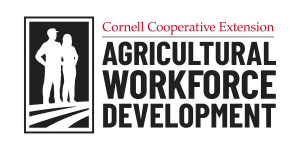In “Culture Starts in the Toilet!”, Mary Lewis reminds us that “bathroom etiquette should be taught along with all the other protocols and onboarding.” Employee housing is best when performance goals, expectations, and responsibilities are clearly understood among occupants and management, new employee onboarding should also cover provided housing. Just as you explain to your new hires how to limit fruit bruising and prevent a high somatic cell count, you must also explain how to care for the housing you provide.
Spring is a great time of the year to re-establish housing expectations and encourage a positive housing culture with new arrivals and existing employees. The following steps from the Orientation Guide for Occupants of Farm Housing are guidelines for farm-provided employee housing managers.
Goals: Setting goals helps establish new habits and sharpens focus.
Have goals been identified?
Are they clearly communicated?
Responsibilities: Assigning responsibilities can guide decision making that can lead to improved conditions.
What are the responsibilities and how are they assigned?
Are they posted for all parties to view?
What are the consequences for not performing them?
The following link is to a helpful poster available from the New York State Department of Health:
Responsibilities of Operator and Occupants of Migrant Farmworker Housing
 Inspections: Performing routine inspections ensures the housing is being maintained safely and prevents costly repairs due to neglect.
Inspections: Performing routine inspections ensures the housing is being maintained safely and prevents costly repairs due to neglect.
Is there a manager designated to conduct inspections?
What is the protocol for addressing failure to meet expectations?
Housing Rules: Establishing written house rules can help keep employees and their families safe and may protect you from liability.
Are rules established and posted?
Who enforces the rules?
The Orientation Guide for Occupants of Farm Housing also contains recommendations on kitchen care and food safety, bedroom, bathroom, and basic mechanical operations.
For further assistance contact Jay Canzonier at Cornell Agricultural Workforce Development.
______________________________________________________________________
By Jay Canzonier, Cornell University. Permission granted to repost, quote, and reprint with author attribution.
The post Get a Fresh Start for Employee Housing this Spring! appeared in The Ag Workforce Journal.


